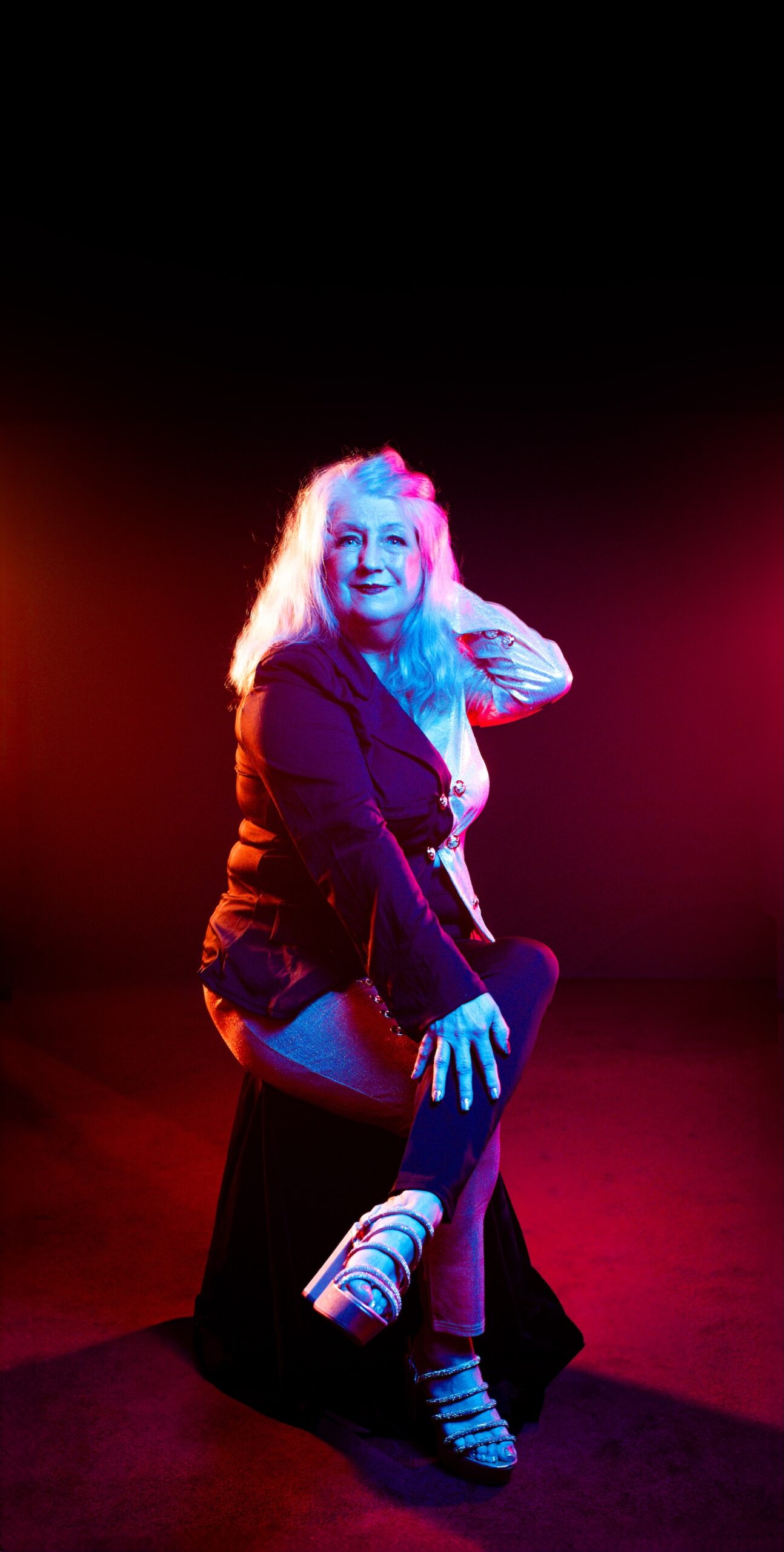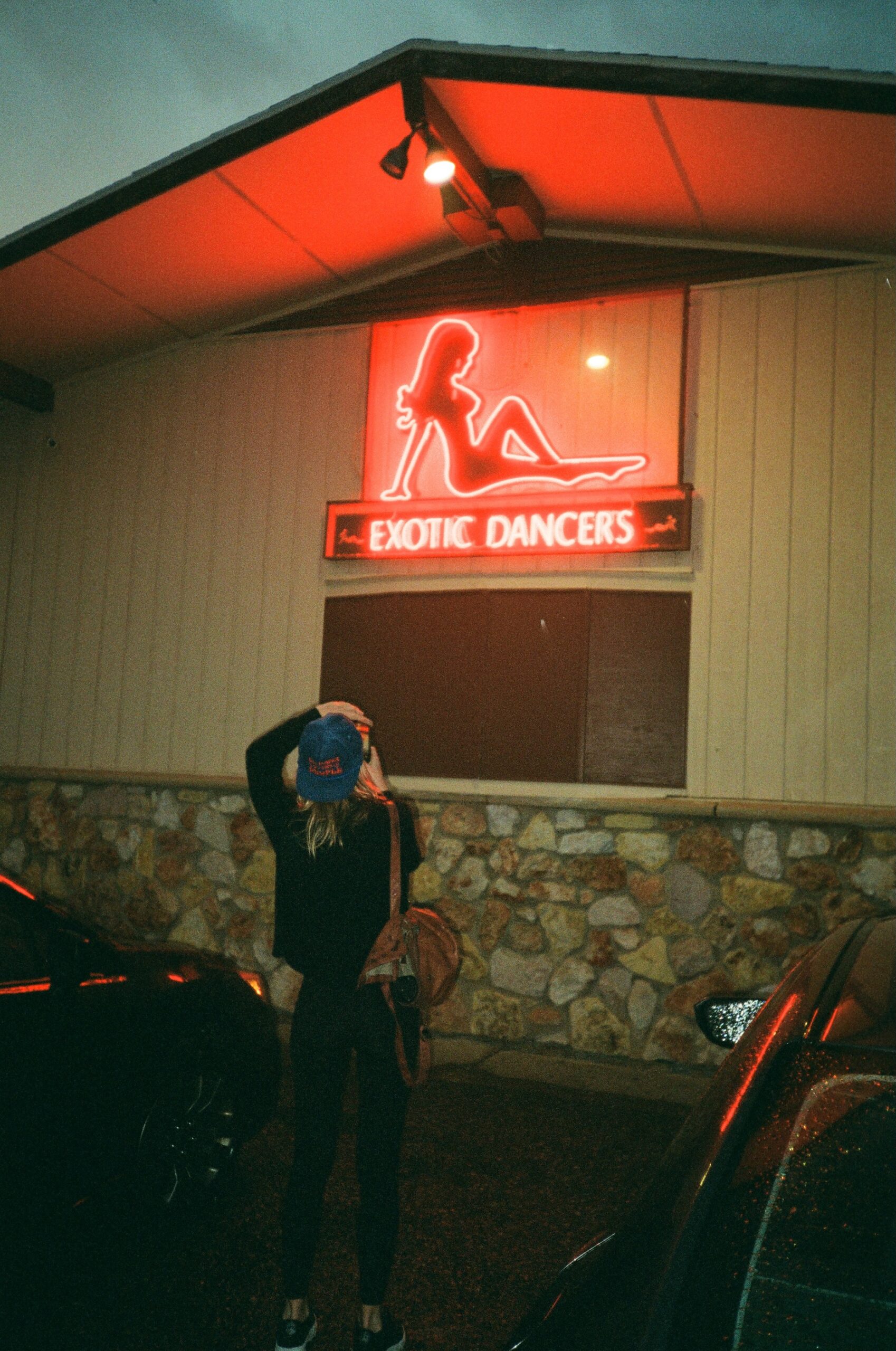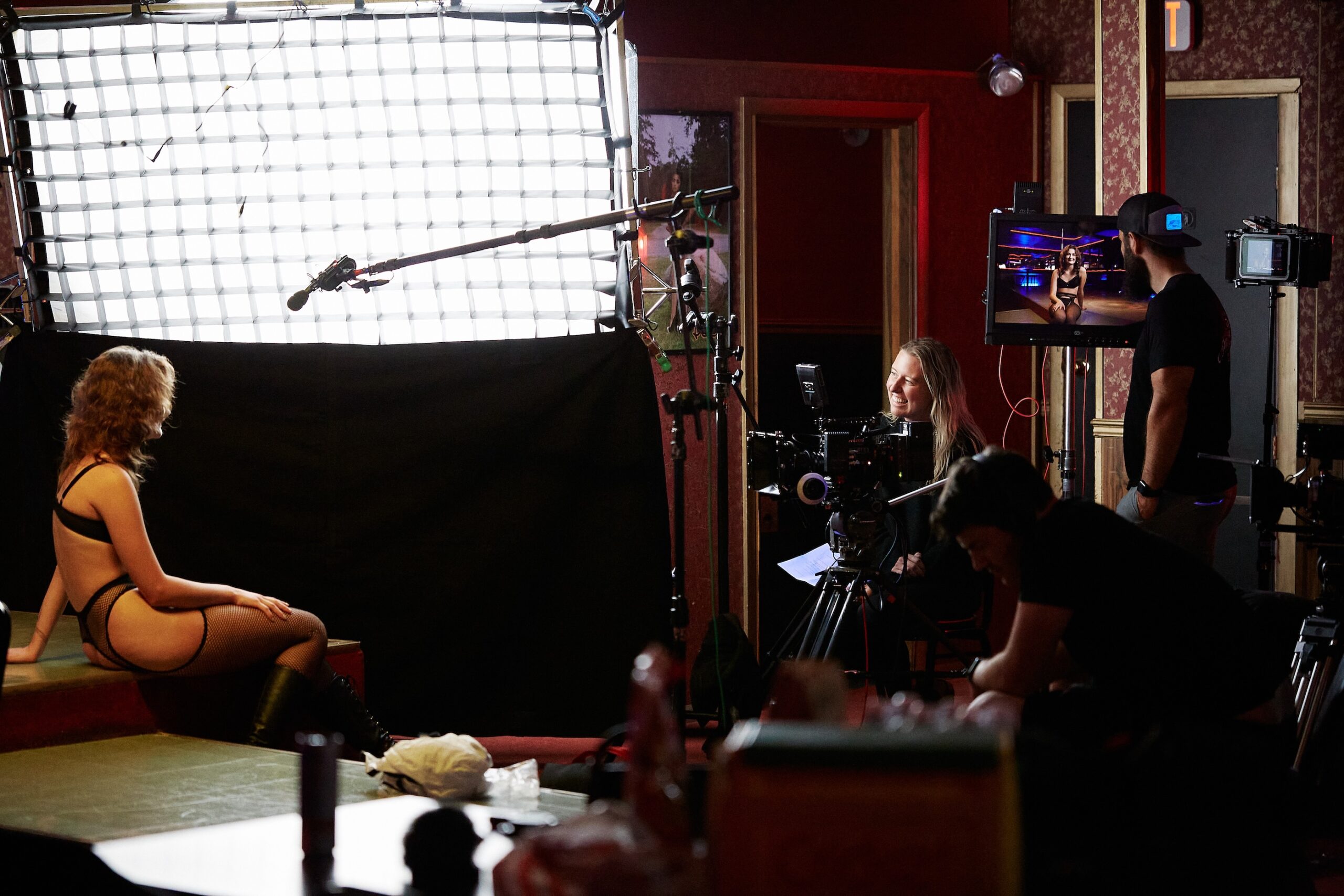The Gold Nugget was the first exotic dance club filmmaker Paige McKenna had ever visited.
“I was extremely uncomfortable,” she told WPR’s “Wisconsin Today.” “I remember having an overwhelming sense of anger for the men that were in there. I felt very protective of the women on stage. But I also came up with opinions of the women before I even talked to them or got to know them.”
McKenna, confronted with her own snap judgement about the women dancing on stage, decided to break down and explore these feelings in what would become her second documentary, “GOLD.”
News with a little more humanity
WPR’s “Wisconsin Today” newsletter keeps you connected to the state you love without feeling overwhelmed. No paywall. No agenda. No corporate filter.
The film focuses on the Gold Nugget in Spread Eagle, Wisconsin, and follows five dancers with ties to the club, including its owner Miss Dusty.

“I wanted to learn more about that world,” McKenna said. “I was very curious about women in this industry and why they choose the paths they do.”
McKenna and Miss Dusty, who requested to be referred to by the stage name she used when she was a dancer, both spoke to “Wisconsin Today” about stereotypes regarding exotic dancers, the making of the film and what they hope audiences take from it.
When McKenna first approached Miss Dusty with her idea for the documentary, Miss Dusty was reluctant to participate.
“She was very reserved, and I don’t blame her at all,” McKenna said. “I remember we had lunch together, and [Dusty] didn’t look me in the eye the whole time. At that moment, I thought, ‘Well, this is going to be a little more difficult than I had expected.’”
Miss Dusty said she hesitated to share her story on camera because she felt she didn’t do anything special. But while McKenna was interviewing the dancers at the club, she said it became clear Miss Dusty ran her club differently than others — by empowering her dancers, demanding respect from patrons and encouraging the dancers’ sobriety.

Perhaps most importantly, Miss Dusty wants all the women that work for her to take what they need from their job at the Gold Nugget. And then leave.
In the film, Miss Dusty says she wants the women who work there to be financially and emotionally independent.
“I tell the girls, ‘Make something of yourself. Be something. While you’re young and with no kids, go ahead. Have fun. Do what you gotta do,” she says. “But make plans for the future. Whatever it is you desire. But work at something better than what you have.’”
Because of her own experience as an exotic dancer in the ‘90s, Miss Dusty said she understands why some women do this work.
“When I first started, I had very low self esteem,” Miss Dusty told “Wisconsin Today.” “I didn’t think I was much of anything. But as time went on, I discovered a power I didn’t know I could have. In my [first] marriage, whatever he said, I did. So to be able to walk away from that control was very empowering. I was able to get in the habit of telling men, ‘no.’”
In the film, a dancer named Aubrey notes that while many of the women have experienced trauma or have a painful past, that isn’t always the case. However, she says, all of the dancers experience some judgement or contempt, often from strangers both during and outside of work.
“Let’s say hypothetically, these girls have gone through so much trauma. Is that really what you’re going to do to somebody who’s gone through so much trauma — beat them down? What kind of person are you to talk down to somebody who’s gone through so much,” Aubrey says in the film.
McKenna told “Wisconsin Today” she was asked several times by people who learned about “GOLD” if she was a dancer, too.

“Nobody asked if I was a nun when I did my last film, which was about a nun,” McKenna said, referring to “Seeds of Life,” her debut film, which was accepted by 14 different film festivals and won several awards in the U.S. and Canada.
Getting into film festivals with “GOLD,” McKenna said, has been “much more difficult.”
“[Maybe] people are still really fearful about talking about the sex industry,” McKenna told “Wisconsin Today. “I’m not sure what the reason is for our many rejections so far, but we really have gotten a lot. We actually got disqualified from a film festival that had invited us to apply because of the [partial] nudity. Yes, it can be uncomfortable at times throughout the film, but a lot of the issues that are dealt with are issues that any of us can go through.”
For McKenna, the point of the film is to remind audiences that exotic dancers do not deserve judgement, abuse or disrespect, and to encourage people to reflect internally on the real reasons they might look down on someone they don’t know.
“I have so much to learn,” McKenna said. “I have so many of my own judgments to take out of my head. It’s not fair to the women for me to come up with my own story of how their life has gone. Who am I to do that?”
Regardless of how “GOLD” is received, McKenna values the connections she has made with the film.
“At least I have cultivated the sisterhood with Dusty and with the women. They’ve trusted me to tell their stories, and I can’t think of anything that’s more fulfilling than that,” she said.
The film will be shown twice at this year’s Beloit International Film Festival from March 28 to April 6.




